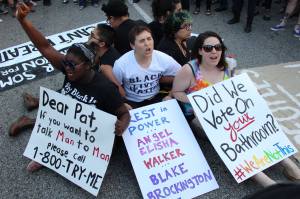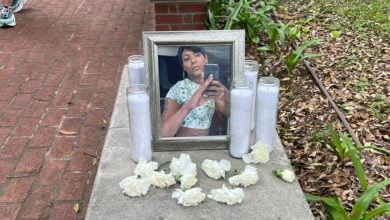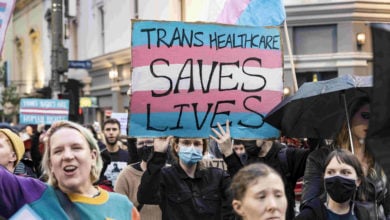In February, the city council of Charlotte, N.C., passed a landmark LGBTQ anti-discrimination law by a vote of 7-4 in line with other national legal victories.
The law specified that businesses cannot discriminate against LGBTQ customers, adding to long-standing protections based on race, gender and religion. It applied to public areas like bars, restaurants and stores. Taxi services were also to comply with the law. Perhaps the most significant change was for transgender residents, allowing them to use the restroom that matched their gender identity.
The reactionary right seized on the opportunity to promote anti-trans bigotry and division, using fear to pass through the General Assembly in a single day a bill that not only reversed the gains in Charlotte, but preemptively forbid any other cities or counties from passing their own anti-discrimination acts.
There was an immediate united response to these reactionary maneuvers. Protesters gathered outside the Governor’s mansion on March 24. Similar protests occurred in Asheville, Boone, Chapel Hill and Charlotte itself.
Laws promoting bigotry could also mean economic trouble for North Carolina as it faces a backlash in the form of a boycott. Bruce Springsteen canceled a concert set for the April 10 at the Greensboro Coliseum. The city of Seattle has forbidden its employees to travel to the state on official business. Even major corporations want to distance themselves from such bigotry. PayPal canceled a $3.6 million dollar investment for a new global operations center, which would have employed 400 people. Metro is saying it will boycott a conference scheduled to take place in Charlotte. Braeburn Pharmaceuticals is said to be reconsidering a $20 million expansion.
And the spirit of united fightback continues.
In campuses across North Carolina, protests and occupations broke out. University of North Carolina President Margaret Spellings issued a memo to school chancellors stating m that the university would be complying with sweeping anti-LGBTQ law HB2. Spellings, who was installed as president of the UNC by what has been described as a “de facto coup,” has a proven history of discriminatory behavior against the LGBTQ community, including dismissing homosexuality as a “lifestyle.” In 2005, as Secretary of Education, she engaged in what has been called “perhaps the most galling act of homophobic censorship of the decade” in which she censored a children’s public TV show episode about a child with two lesbian moms.
Backlash against the memo issued early last week was almost immediate with UNC students protesting in Charlotte on April 8. Meanwhile, that same day, the Appalachian State University’s administration building was occupied by a union of students and faculty. The following day students gathered outside the meeting Spellings was holding in the UNC Pembroke building, while at UNC Wilmington a bathroom sit-in protest was taking place.
Leaders of the N.C. branch of the NAACP have issued an ultimatum: repeal the law by April 21 or face sit-in protests at the General Assembly. This would require lawmakers to call a special legislative session, the exact method used to pass the law in the first place in less than 24 hours. It should be noted that the legislature is not scheduled to resume its regular session until the April 25—four days after the ultimatum’s deadline. Realizing this, N.C. NAACP branch president Rev. William Barber has called for a sit-in that very day saying, “On the 25th, we are calling people of conscience to come in, to engage in mass sit-ins as a sign that as we sit this legislation needs to be sat down.”
One important lesson of the gains of the LGBTQ movement has been the building of alliances and bonds of unity in each step of the struggle. This chapter of fightback in North Carolina is sure to continue in that legacy of solidarity to push back bigotry and win full rights for all.






